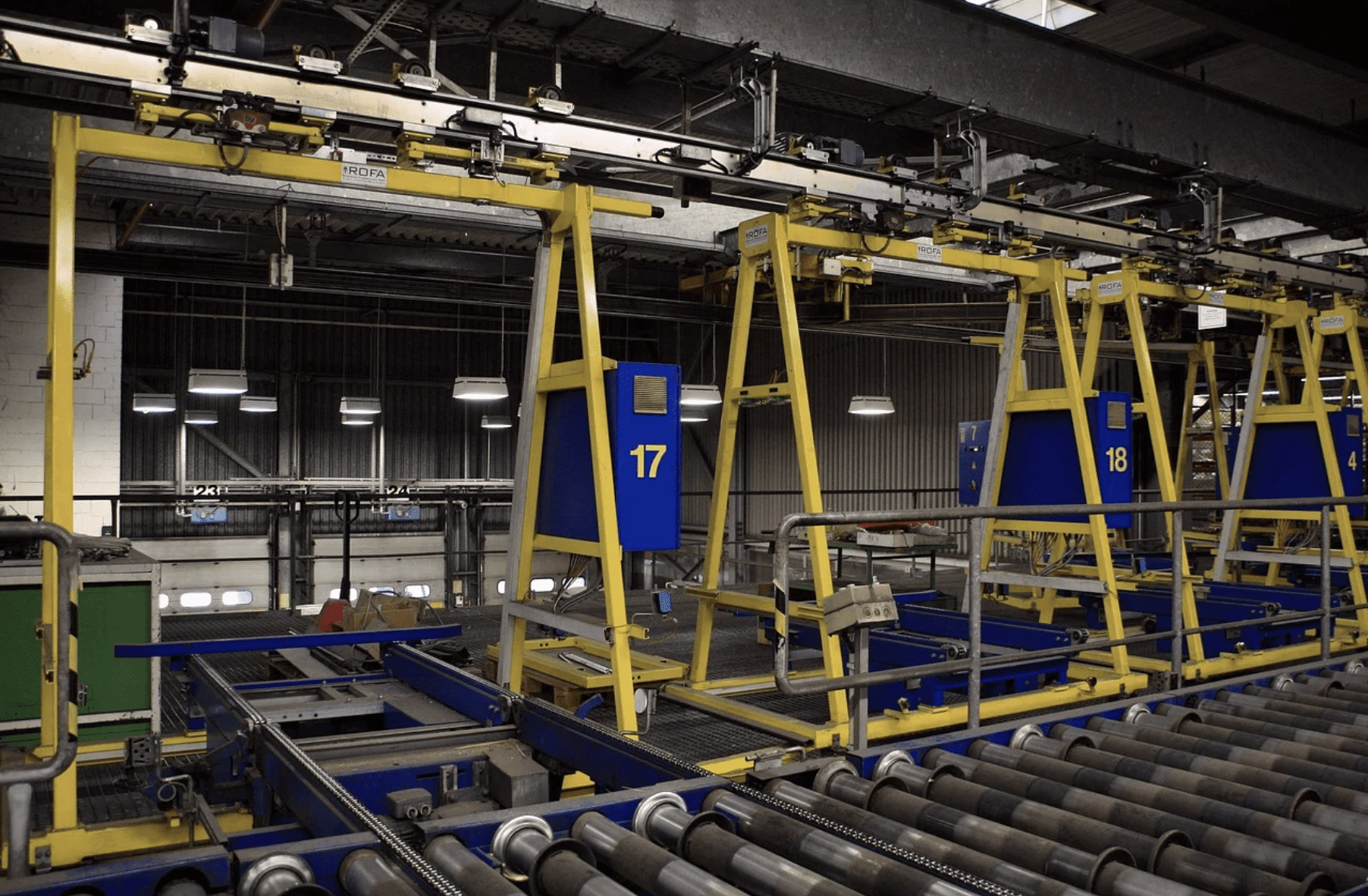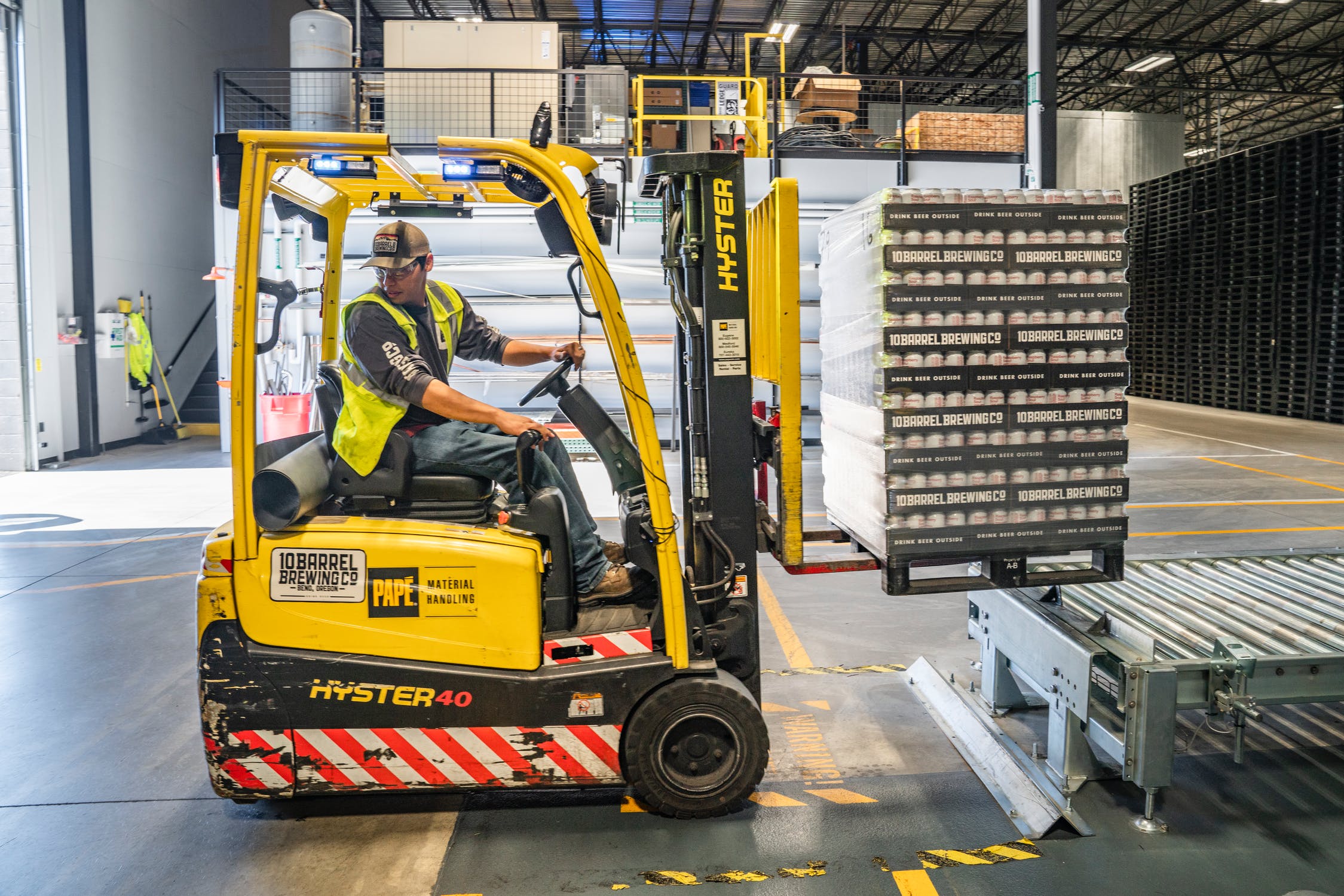The world has always been changing, but it does seem like, over the past several decades, it’s changing faster than ever. From medical to technology advances, the world today is nearly unrecognizable from what it was just thirty or forty years ago – in the space of a single generation.
People are always concerned about what technology is going to do to certain jobs and certain industries once automation takes hold – if you are, too, here are 16 jobs that might be falling by the wayside in the near future.
16. Fast food workers

Image Credit: Pexels
All over the world, this is starting to happen – but I can’t help but wonder how they’ll handle our complaints about the ice cream machine.
“Already in Japan, human-looking robots take orders and deliver meals in restaurants. And in the United States, the process of ordering has been automated at McDonald’s, for instance.
The workers in the back may still be cooking and assembling your order on a cafeteria tray in the future, but there will be little need for a real person to call out, ‘Jack, your order is ready!’ or to deliver it to the table.”
— Laura Handrick, Careers and Workplace Analyst at FitSmallBusiness.com
15. Ride share drivers

Image Credit: Pexels
There’s a long way to go to convince people autonomous driving cars are safe, but we’re obviously heading in that direction.
“Autonomous self-driving cars will use AI technology to drive and apps to identify who needs to be picked up and dropped off.
Payment will be made with a simple credit-card swipe (as it often is today), and there will be no one holding onto a steering wheel who needs to be tipped.”
— Handrick
14. Librarians

Image Credit: Pexels
I hate to think this could happen.
“This is not just about the automatization of work but also about changing lifestyles. Books are relatively cheap, plus people tend to use more and more electronic readers or audiobooks these days. Not to mention that people read less in general.
Don’t you worry—the libraries won’t just disappear overnight with books burnt in a bonfire, but the rental system will most likely become an online solution.”
—Roger Maftean, a career expert at ResumeLab
13. Payroll services

Image Credit: Pexels
I feel like a lot of companies are already hiring this out.
“We see a massive decline in demand for jobs in the payroll department. This includes payroll clerks, payroll coordinators, payroll managers, payroll specialists, and more.
We believe the advancement of payroll systems like Gusto has made a significant impact on the demand for these positions. Gusto recently received a $3.8 billion valuation, and while exact numbers aren’t made public, they recently passed 100,000 paying businesses.”
—Patrick Algrim, a human-resources expert for product and engineering teams in Silicon Valley.
12. Commercial painters

Image Credit: Pexels
No one needs a refresh anymore.
“For the past five years, we’ve had a hard time finding any apprentices or youthful people interested in painting. Our workforce has been getting older, and our competitors are experiencing the same problems.
One contribution to this is a lack of interest in commercial painting. But another contribution is maintenance-free surfaces. New technologies in material sciences are creating walls, ceilings, and floors that don’t require any coatings. So not only is there less interest from younger people to become commercial painters, but there is also less demand due to these new materials being used to construct new buildings.”
—Jeff Neal, project manager for Penn Coat Inc.
11. Pricing analysts

Image Credit: Pexels
When AI can do it better, humans are out.
“At my company, we are working on an AI algorithm that will eliminate several pricing-analyst positions.
The AI will have machine learning so that it can figure out the costs of our products and the market trends.
Right now, we have pricing analysts doing this job manually with Excel sheets. The turnover is extremely high for these positions.”
—Becky Beach, a web developer and blogger at MomBeach.com
10. Customer service reps

Image Credit: Pexels
No more berating actual humans – what a concept. At least until the day the robots get tired of taking our crap.
“The development of artificial intelligence brought us chatbots—friendly AI bots that substitute for customer-service officers.
Perhaps the times when we hang on the customer-service telephone lines for hours will soon be over. Bad news for those that make a living as customer helpers, and for those who are good at it, too. But some thinkbots can do an equally good job, plus they’re cheaper and quicker.”
—Maftean.
9. Car mechanics

Image Credit: Pexels
No one to talk down to me for being a woman anymore? Whatever shall I do?
“We’ve all seen Tesla making waves in the automotive industry, and this is just the beginning. The industry as a whole is moving toward all-electric and self-driving vehicles. Mechanics are going to be more like computer scientists. It’ll be more like working on a computer than working on a car. So, I see the mechanic who likes to get his hands dirty as a thing of the past.
A study from the UK’s Institute of the Motor Industry states, ‘As many as 97 percent of active auto mechanics aren’t qualified to work on electric cars. Worse, of that 3 percent of auto mechanics who are qualified, the vast majority of them are employed at manufacturer dealerships, presenting prospective EV buyers with very limited service options.’”
—Sean Pour, cofounder of SellMax, a nationwide car-buying service
8. Computer repair techs

Image Credit: Pexels
Apple has a ways to go before their computers are this affordable, but here’s hoping.
“Already, computers have become so affordable that most users are more likely to recycle and replace them when they break down than to fix them. That’s likely due to the relative cost of parts and labor to have a computer-repair person fix it versus the more affordable replacement cost and the likelihood they’ll use the PC breakdown as an excuse to upgrade.
In addition, it won’t be long before computers can do their own self-diagnosis and then provide instructions to the computer owner on exactly what needs to be fixed and how (if it’s hardware); or if it’s a software fix, the computer-repair bot will ask your approval and then fix it.”
—Handrick
7. Assembly line workers

Image Credit: Pixabay
That will truly be the end of an American era.
“One of the largest anticipated changes has been the transition of assembly-line workers to a heavier emphasis on robotics. Since 1947, more than 3 million manufacturing jobs have been lost, even as economic output grew by $4 trillion.
Considering that robotic equipment has the ability to maximize efficiency and lower production costs, soon the only available manufacturing positions will begin to require skilled trades or industry-specific technical requirements.”
—Dennis Theodorou, Managing Director of JMJ Phillip Holdings.
6. Translators

Image Credit: Pixabay
Google Translate has some work to do, based on my personal findings while trying to translate German.
“It’s not that we will suddenly learn how to speak different languages. It’s that the machines will do it for us.
Online translators are now able to listen to and translate a conversation on the spot, read it out loud, and swap between dozens of language options. Soon, a human factor here will no longer be needed.”
—Maftean
5. Deep-sea divers

Image Credit: Pexels
What’s at the bottom of the sea? Nothing we need to see with our own two eyes, apparently.
“For decades, deep-sea divers have been exploring, researching, and providing manual treatments on the ocean floors. This work can be dangerous and takes a high level of skill to do well. Increasingly, this area of labor and expertise is leaning on the effort of robots and drones.
For example, Australian experiments using robots to repair the Great Barrier Reef have proven successful, and there are near-term plans to [increase] these efforts by 10 to 100 times in the coming years. In addition to removing safety concerns, another advantage of drone divers is that they can go deeper and sustain greater pressures, and stay submerged nearly indefinitely.”
—Michael Alexis, Director of Marketing at Museum Hack
4. Cashiers

Image Credit: Pixabay
I doubt too many people will be complaining about this one.
“Jobs such as cashier have already changed while not being entirely replaced.
The job of cashier has taken on the flavor of an IT position because self-checkout lanes are growing in popularity.”
—Sy Islam, PhD, Assistant Professor at Farmingdale State College and Vice President of Consulting for Talent Metrics.
3. Warehouse workers

Image Credit: Pexels
Will Bezos treat the robots any better or is an uprising on the horizon? Stay tuned!
“The job that is in imminent danger is warehousing people filling orders for online sites like Amazon. [Jeff] Bezos has said multiple times in interviews that he would love to keep the warehouses completely automatic. They are developing robots that could easily fill those positions, and they could work 24/7, unlike their human counterparts.
Elon Musk is another one who has been very open about this. He knows that robots get complicated with simple tasks, so his warehouses will never be 100 percent human-free, but the type of job will be very different than it is today.”
—Alberto Navarrete, General Manager of Frisco Maids.
2. Mortgage brokers

Image Credit: Pixabay
Let’s face it, no one wants to deal face-to-face anymore if they can help it.
“During the ‘Great Recession’ when the real-estate bubble burst, there was a major shakeout in the ranks of well-paid, traditional mortgage brokers. The number of working mortgage brokers dropped by roughly 80 percent—and the average salary of the survivors dropped by more than 30 percent.
Further, getting a mortgage quote on the Internet these days is generally quite straightforward due to the efforts of outfits such as Rocket Mortgage, Guaranteed Rate, Quicken Loans, Better Mortgage, and several others. Finally, millennials (which recently became the largest demographic group in America) are more likely to get things done via the Internet than in face-to-face transactions; and those young folks, along with their fledgling brethren in Gen Z, are the home buyers of the future.
So, as a profession, the future for traditional mortgage brokers is quite bleak, and I believe that very few of them will survive the next decade.”
—Timothy G. Wiedman, PHR Emeritus, Associate Professor of Management & Human Resources (Retired)
1. Air traffic controllers

Image Credit: Pixabay
Shouldn’t there still be someone there like, just in case, though? This one freaks me out.
“Automation will most definitely have a severe impact on the job market, but I think where it will hit the hardest are in industries or specific roles where the risk of human error is not only greater, but the consequences from said errors have a more catastrophic impact. People assume I’m talking about air-traffic controllers and things like that.
However, there are still technological constraints that will enable humans to keep that type of role. [There are] a ton of abnormal situations arising every day that a computer isn’t yet capable of handling. This isn’t to say that won’t change in the coming decades.”
—Jason Yau, VP of E-Commerce and General Manager at CanvasPeople
I have to think that our changing world will find a way to keep up with new alternatives.
What jobs do you see going away in the near future?






